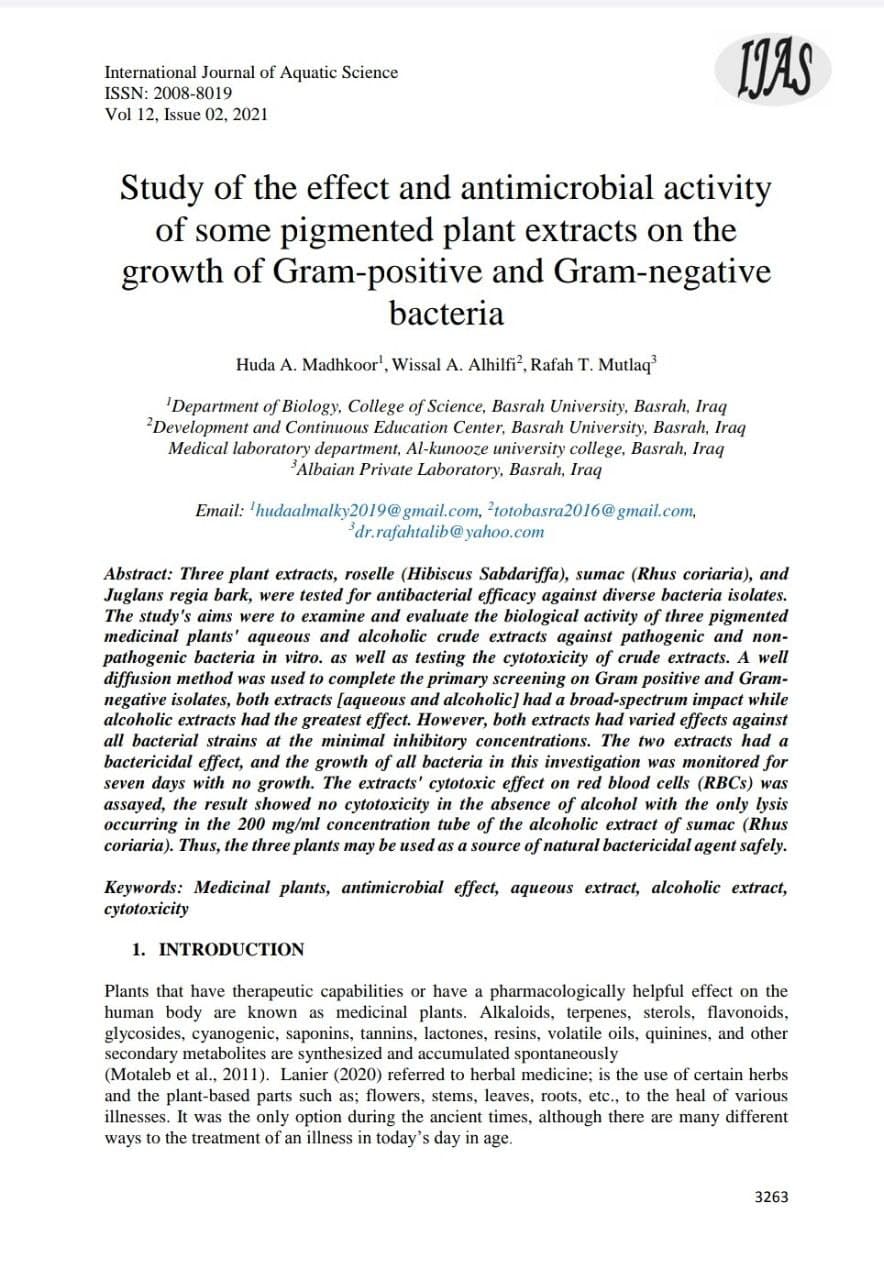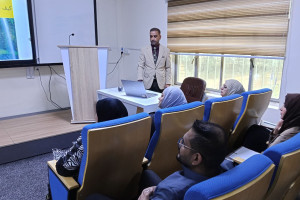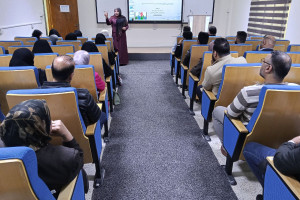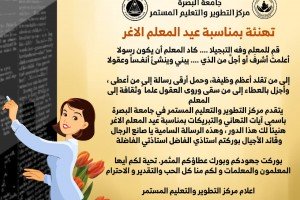
A lecturer at the Center for Development and Continuing Education at the University of Basra, Dr. Wisal Odeh Hassan Al-Halfi, published a scientific research on the effect and antimicrobial effectiveness of some dye plant extracts on the growth of gram-negative and gram-positive bacteria in Clarvet magazine.
The aim of the research is to examine and evaluate the biological activity of crude alcoholic and aqueous extracts of three chromosomal medicinal plants against pathogenic and unsatisfactory bacterial species in the laboratory, in addition to examining the cytotoxicity of these extracts.
The research included using the method of diffusion by digging for agar to measure the biological activity of three pigment plants, namely, sumac, hibiscus, and bark of walnut trees (Deerm). Both aqueous and alcoholic extracts gave a wide-range effect. Consecutive.
As for cytotoxicity, the extracts did not show any toxicity towards the blood cells used in the test except for the highest alcohol concentration used for sumac.
Dr. Wisal Al-Halfi explained the use of this plant as an anti-bacterial and safely as an alternative to chemical treatments









